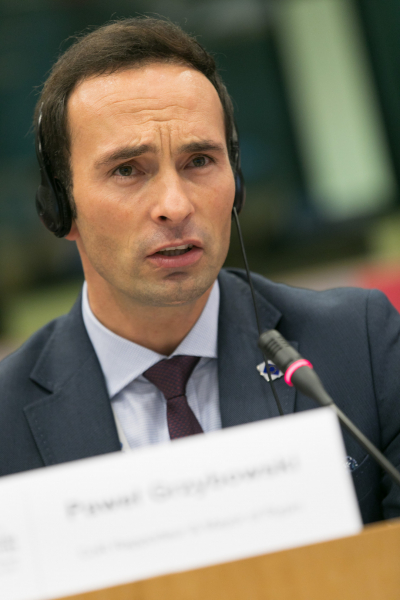
In response to the European Commission's new plans for a European Pillar of Social Rights, the European Conservatives and Reformists Group underlined that adressing social rights does not require greater centralisation of social policies in Brussels. While underlining that we do need to achieve equal opportunities in our societies and fair working conditions through coordinated action, the Group flagged subsidiarity concerns over replacing national systems with a single EU welfare system.
The ECR Group voiced strong opposition to the opinion on the European Pillar of Social Rights and voted against the CoR opinion at the CoR plenary on 11 October 2017. The general tenor of that criticism also applies to the current proposal by the European Commission. The European Pillar of Social Rights, presented as a Commission recommendation on 26 April and reffered to by Jean-Claude Juncker in his 13 September State of the Union address. It aims to deliver new and more effective rights to citizens and has three categories; 1) equal opportunities and access to the labour market 2) fair working conditions and 3) social protection and inclusion.
The ECR Group Coordinator for the Commission for Social Policy, Education, Employment, Research and Culture (SEDEC), Paweł Grzybowski, stressed that the solution at the EU level cannot always be more centralisation. "Yes we do have a problem. We are yet to achieve equal opportunities for our citizens so that a child can have a bright future irrespective of the family or country it is born into. However, the way to address this is not by trying to harmonise the social systems of 28 diverse economies."
Underlining that there were warning flags already raised by national parliaments on Commission proposals on social matters, Paweł Grzybowski emphasised the need to respect the principle of subsidiarity "We need to respect the powers of local, regional and national authorities. We need to respect the principle of subsidiarity," he said.
The Commission has already received a "yellow card" from national parliaments over its proposed reform of the Posting of Workers Directive. The Commission proposed changes in three main areas: the remuneration of posted workers (making it equal to that of local workers, even when subcontracting), more coherent rules on temporary agency workers, as well as long-term posting. These changes would mean that it would go significantly beyond the requirements of minimum remuneration of the existing directive. Despite the 'yellow card' procedure triggered by 11 Member States because of subsidiarity concerns, the European Commission stands by its initial proposal.
Mr Grzybowski (Mayor of Rypin in Poland) noted the following; "the Group believes that reforms are necessary at EU level in order to enhance competition, keep labour costs down and boost productivity, ultimately bringing an end to an over-regulated labour market. But we believe that employment legislation is best decided at national level and that any European initiative must show due regard for the principles of subsidiarity and proportionality."
ECR Group Member Matteo Bianchi commented the following on the proposal: "We fear that the European Commission's plan will be used to harmonise social policy further, giving more powers to the European level and taking them away from the Member States, regional and local authorities".
ECR Group Member Matteo Bianchi will organise on 14 December in Milan, Italy, a citizens' dialogue devoted to European Commission's proposals for a European Pillar of Social Rights and work-life balance. The event will be organised under the auspices of the Lombardy region and the European Committee of the Regions. It will be attended by citizens, local, regional and national politicians, academics and researchers. Besides Mr Bianchi, among the key speakers will be CoR Members Raffaele Cattaneo (President of the Lombardy Regional Council) and Mauro D'Attis (CoR rapporteur on the European Pillar of Social Rights).

